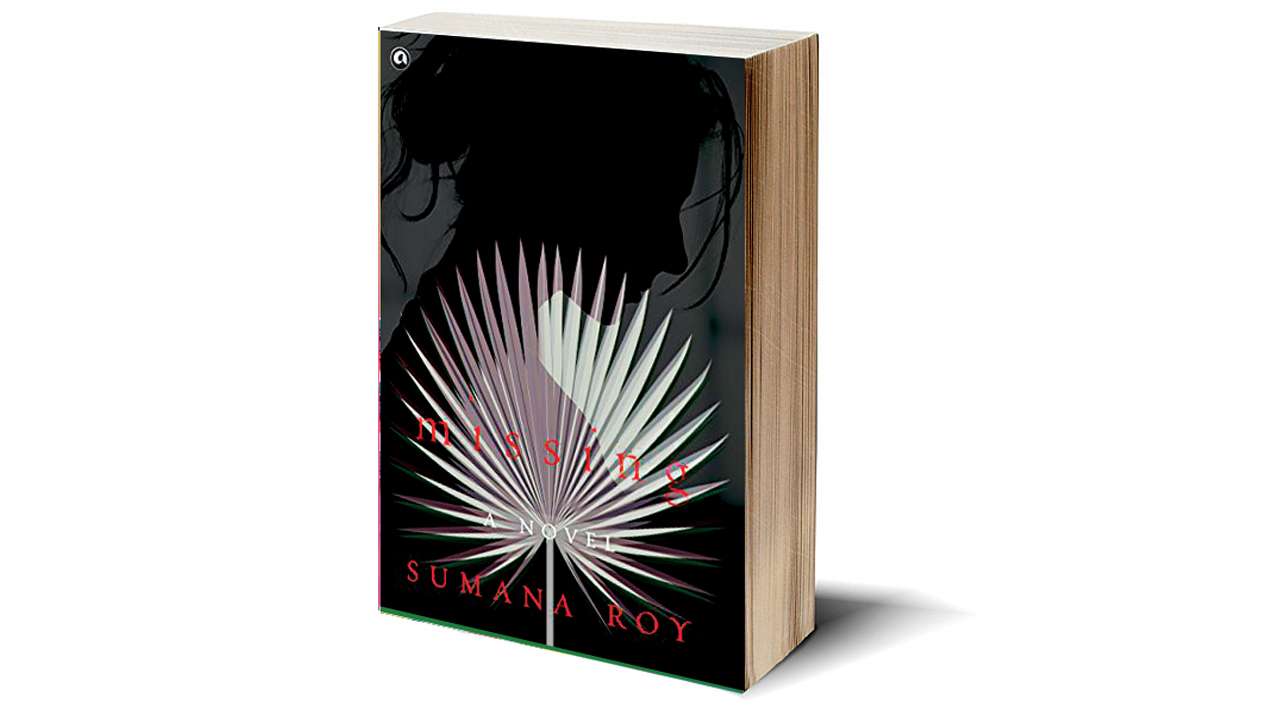
Book: MISSING
Author: Sumana Roy
Publisher: Aleph Book Company
Pages: 267
Price: Rs 414
In today's world of thrillers and chick lit, the literary novel, one that makes the reader delight in its mellifluous prose, its ability to shift perspectives with a few well-honed sentences, and to be read again and again for new meaning - is something of an endangered species. Fortunately, as Sumana Roy's Missing proves, it is far from extinct. Roy's book, a tale of a visually impaired man, ironically called Nayan, struggling to accept that his missing wife Kobita is possibly dead, is poignant, reflective and gently funny.
While the 'missing' wife occupies centre stage, it is the prolonged and intimate interactions of Nayan – made helpless over time by his disability and Kobita's assertive nature – with the 'underclass' that make up the crux of this book. These characters – Bimal Da, an elderly carpenter called home because Kobita had ordered a bed; Tushi, Bimal's grand-daughter who reads the English newspaper for news of Kobita; Ahmed a labourer working with Bimal – are sparkling, spirited and opinionated.
Those looking for a racy plot with a conventional beginning and end will not find this book interesting. This book is to be savoured like delicate wine. Sentences like, 'Because he forgot that even words have childhoods, Nayan cannot be sure that he had heard it right,' pop up all over like little treats. But it is the descriptions, particularly of Kobita, where the writer is at her strongest.
With Kobita we get a sense of a strong character holding her own, but we are never entirely sure of who she is. Officially, Kobita is somewhere in Assam to rescue a girl but doubts soon creep in among the other characters who start to believe she has run away. As Bimal Da tells Nayan, "A wife is like sunlight. Imagine what would happen to plants if we had sunlight for twenty-four hours? Eight hours of sunlight is enough for the day."
While all of these make the book a joy to read, there are drawbacks too. Roy juxtaposes Nayan's quiet life in Bengal with that of his son Kabir in England. It is here that the novel fails. Roy is obviously comfortable with Nayan's milieu – she lives in Siliguri – but Kabir's character and plot line fall flat. What is he doing in England? Why does he resent his father? Why do they not talk? Does he pity him, feel angry with his disability? What does he think of his father and mother's relationship? Fleshed out, the answers to these questions would have provided a wonderful layer to the book.
The plot also defies credulity in places. She ignores basic things one might do if a wife is missing – why does Nayan not file a Missing Persons report immediately? (The reason given that his wife will be angry with him when she finds out, doesn't sound believable.) Why does Kabir not rush home immediately? Is he not afraid of his father being hurt, or robbed, or feel that he must take an active part in the search? Apparently not. Why doesn't Nayan even think of going to Assam, calling the police in that area, putting an advertisement in the newspaper for information about his wife. The characters extol Nayan to do something, but he doesn't. Instead, he decides to go to a temple in accordance with Bimal's wishes rather than his own. Why? Nayan does not seem to have any wish to go, nor is he a believer. These inconsistencies spoil a beautiful narrative.
Despite all this, Missing is a treat especially in the first half. Granted, it's a long way from 'great', but Roy does manage to hold our interest. For those who love musings and the fine art of stringing together simple and delectable sentences, this is a book that should be celebrated.